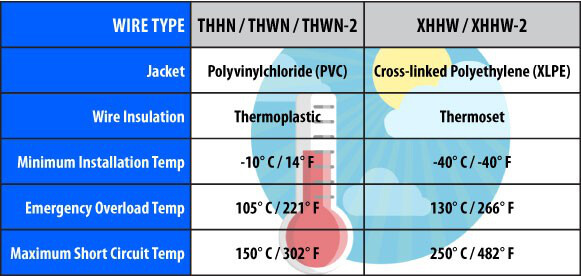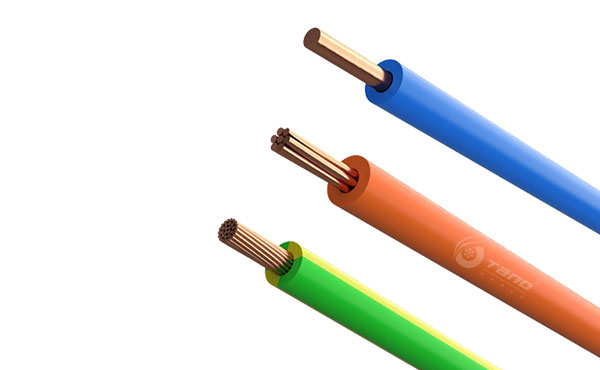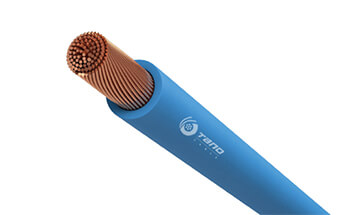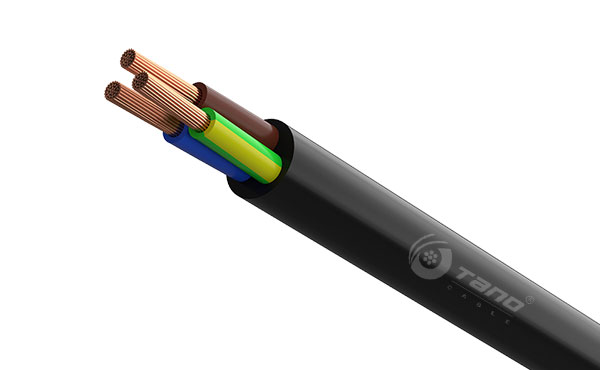03
Feb
THHN vs. XHHW: what is the difference?
Share:
When designing and building a new facility or machine, engineers need to fully understand the specifications – the strengths and weaknesses of each wire available for the job. The biggest challenge for an engineer is to balance the best wire for the project and the budget.
THHN / THWN / THWN-2 and XHHW / XHHW-2 – are a lot of letters to understand, but they are two common types of building wire, and it’s critical to understand the differences between the two in order to choose the best wire for your application.

.jpg)
XHHW-2 wire is the next generation XHHW wire. While its main use is for residential, commercial and industrial buildings, it is also used in raceways, feeders, and circuit wiring.
XHHW-2 is approved for use up to 600V and is UL Listed for 90° C (194° F), in both dry and wet locations. The previous generation of XHHW had a lower temperature rating, approved up to 75° C in wet environments, making the next generation XHHW-2 wire a more useful and an ‘all environment’-type product.
In addition to the specifications noted above, the main difference between THHN / THWN / THWN-2 and XHHW / XHHW-2 and is in the wire’s jacket. The jacket on the THHN family is thinner – this means that while more THHN can be fit through many obstacles, its jacket doesn’t offer as much protection as the XHHW jacket. As well, the coating on the XHHW’s jacket is more resistant to chemicals, ozone, and abrasions while THHN’s thinner coating, under extreme conditions, can lead to current leakage and can break down from chemical or environmental exposure, emitting a toxic smoke when burned.
Surprisingly, even though XHHW has a thicker and more protective jacket, it is also more flexible than THHN wire. This is due to the XLPE insulation of the XHHW allowing the cable to bend and flex more easily than the PVC insulation of the THHN – making XHHW much easier to work with during the installation process.
As always, the decision between using THHN or XHHW comes down to weighing performance versus budget. Our customers often express that the more popular and less expensive THHN wire is perfectly suitable for what they need. On the other hand, XHHW has additional features that provide increased efficiency and extended longevity.
THHN / THWN / THWN-2 and XHHW / XHHW-2 – are a lot of letters to understand, but they are two common types of building wire, and it’s critical to understand the differences between the two in order to choose the best wire for your application.

THHN / THWN / THWN-2
THHNTHWNTHWN-2T = Thermoplastic
.jpg)
XHHW-2 wire is the next generation XHHW wire. While its main use is for residential, commercial and industrial buildings, it is also used in raceways, feeders, and circuit wiring.
- Conductors: Copper or aluminum
- Wire: Solid or stranded cable – stranded wire is used to maintain flexibility
XHHW-2 is approved for use up to 600V and is UL Listed for 90° C (194° F), in both dry and wet locations. The previous generation of XHHW had a lower temperature rating, approved up to 75° C in wet environments, making the next generation XHHW-2 wire a more useful and an ‘all environment’-type product.
Comparison:
Wire and Jacket Insulation:
In addition to the specifications noted above, the main difference between THHN / THWN / THWN-2 and XHHW / XHHW-2 and is in the wire’s jacket. The jacket on the THHN family is thinner – this means that while more THHN can be fit through many obstacles, its jacket doesn’t offer as much protection as the XHHW jacket. As well, the coating on the XHHW’s jacket is more resistant to chemicals, ozone, and abrasions while THHN’s thinner coating, under extreme conditions, can lead to current leakage and can break down from chemical or environmental exposure, emitting a toxic smoke when burned.
Flexibility:
Surprisingly, even though XHHW has a thicker and more protective jacket, it is also more flexible than THHN wire. This is due to the XLPE insulation of the XHHW allowing the cable to bend and flex more easily than the PVC insulation of the THHN – making XHHW much easier to work with during the installation process.
Final Thoughts:
As always, the decision between using THHN or XHHW comes down to weighing performance versus budget. Our customers often express that the more popular and less expensive THHN wire is perfectly suitable for what they need. On the other hand, XHHW has additional features that provide increased efficiency and extended longevity.
Previous article:







